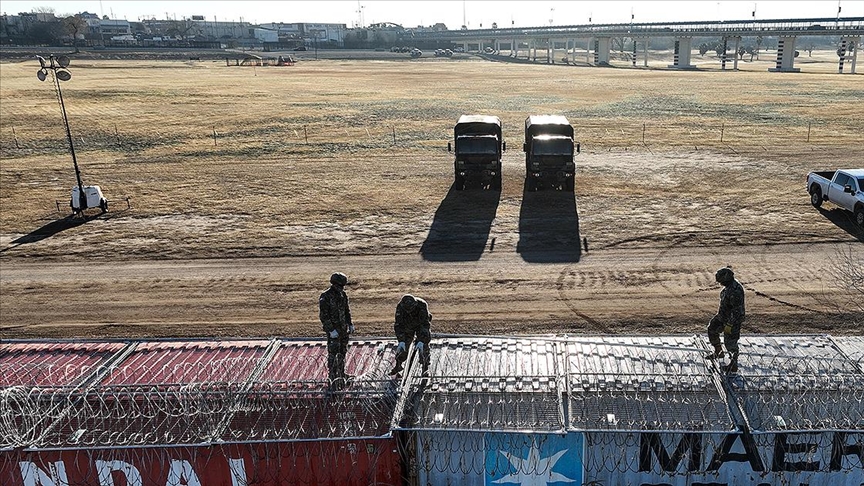The world has been talking about the border tensions in Texas in recent days.
In recent days, when the National Guard, on the orders of Texas Governor Greg Abbott, started to build a four-kilometer fence at the border area in Eagle Pass, which is frequently used by irregular migrants to cross into the US, US President Joe Biden said that border security is primarily the duty of the federal government and appealed to the Supreme Court to remove the fence.
When the court ordered the barbed wire fence to be removed, tensions between Biden and Governor Greg Abbott escalated.
Then former US President Donald Trump called on every state in the country to send its National Guard to Texas.
In response to this call, 25 Republican state governors issued statements in support of Texas’ position.
This unexpected event sparked debates about whether the United States was falling apart or whether it was going to disintegrate.
While there is a serious polemic in the mainstream media, especially in Europe, the historical roots and socio-economic aspects of this event are for some reason not discussed much.
In fact, Texas is a kind of dynamo of world trade.
It is both the top exporting state in the US and, with 1.8 billion people, 10 percent of the US GDP.
There is also a high level of export traffic with China, Mexico, Canada, South Korea and Brazil.
Not to mention the fact that 17 percent of goods produced and exported in the US originate in Texas.
Frankly, for these reasons alone, it would not be an exaggeration to say that Texas is one of the states that made the USA the USA.
Texas also has a special significance in US political history.
Its geostrategic importance in the US-Mexico war (1846-48) and its key role in the US civil war afterwards cannot be overstated.
In terms of its political trends, Texas was a state where the Democrats always maintained the upper hand from 1848, when it joined the United States, until Republican President Eisenhower’s victory in 1952.
Subsequent presidential elections in 1960, 1964, 1968 and 1976 were dominated by the Democrats.
However, since the 1980 presidential elections until today, the majority of voters have consistently voted for the Republican Party.
Republicans also dominate the state legislatures. Texas is therefore one of the most Republican states in the US.
In cities like Houston, Dallas and San Antonio, the Democrats have the upper hand, but in the suburbs of these cities, the Republicans have a clear advantage.
Although there are those who expect internal conflict and disintegration as a result of these tensions, I do not find this possibility rational.
This tense process can be seen as a somewhat harsh manifestation of Republican border security policies and a political reaction to the Republican ideology of American conservatism.
It is important to remember that in the US, even under most Democratic presidents, the Pentagon is usually headed by a Republican defense secretary.
This of course means a lot to those who understand the US domestic political balance.
In fact, Donald Trump, a staunch Republican, recently called on 25 Republican state governors to “provide Texas with National Guard support”.
In all likelihood, the Pentagon’s strategist project team is using this incident to try to shape US domestic and foreign policy in a new way.
Therefore, rather than a split in the US, the tensions may trigger a return to the classical domestic and foreign policies that the Republicans and the Pentagon bureaucratic tradition have always defended.





